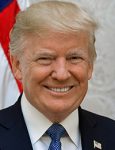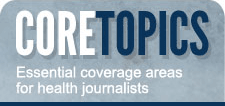Tag
president
-
Names of campaign health care advisers are tightly kept secrets
Muddled arguments about health care have, for better or worse, so far dominated the Democratic primary debates. Every once in…

-
Should a presidential candidate’s age matter?
If you’ve been watching the Democratic debates (and even if you haven’t), you know several candidates running for president in…

-
Fact-checking Cruz’s claims that Obamacare left him uninsured
Ted Cruz, as you may have heard, said on the campaign trail in late January that he didn’t have health…

-
Resources break down candidates’ views on health care, what matters to voters
Here are two more resources before the presidential debate and the final weeks of trying to untangle the health policy…

-
•
Candidates to answer questions on science, policy
President Barack Obama and presidential candidate Mitt Romney will answer a series of questions about science and related policy. The…




